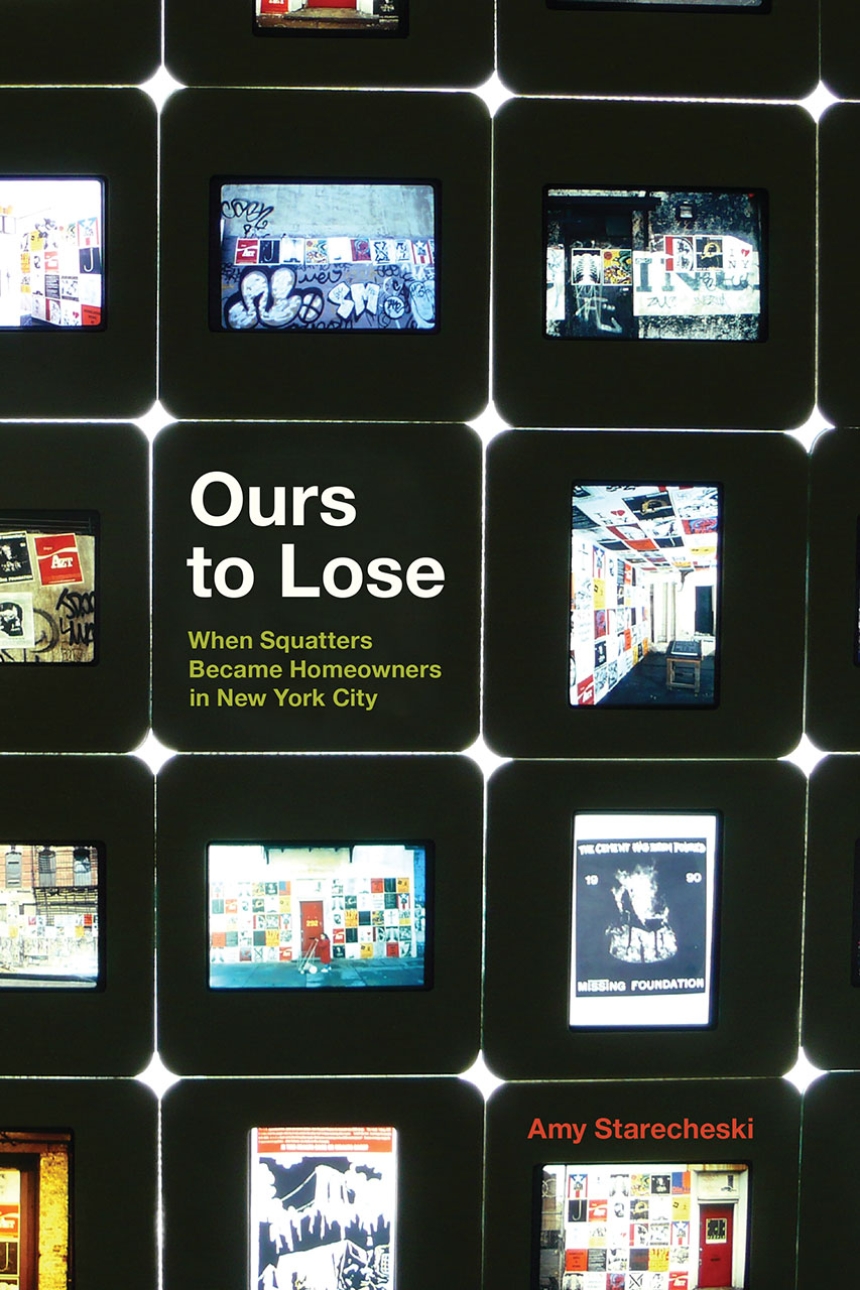Ours to Lose
When Squatters Became Homeowners in New York City
9780226399942
9780226399805
9780226400006
Ours to Lose
When Squatters Became Homeowners in New York City
Publication supported by the Bevington Fund
Though New York’s Lower East Side today is home to high-end condos and hip restaurants, it was for decades an infamous site of blight, open-air drug dealing, and class conflict—an emblematic example of the tattered state of 1970s and ’80s Manhattan.
Those decades of strife, however, also gave the Lower East Side something unusual: a radical movement that blended urban homesteading and European-style squatting in a way never before seen in the United States. Ours to Lose tells the oral history of that movement through a close look at a diverse group of Lower East Side squatters who occupied abandoned city-owned buildings in the 1980s, fought to keep them for decades, and eventually began a long, complicated process to turn their illegal occupancy into legal cooperative ownership. Amy Starecheski here not only tells a little-known New York story, she also shows how property shapes our sense of ourselves as social beings and explores the ethics of homeownership and debt in post-recession America.
Those decades of strife, however, also gave the Lower East Side something unusual: a radical movement that blended urban homesteading and European-style squatting in a way never before seen in the United States. Ours to Lose tells the oral history of that movement through a close look at a diverse group of Lower East Side squatters who occupied abandoned city-owned buildings in the 1980s, fought to keep them for decades, and eventually began a long, complicated process to turn their illegal occupancy into legal cooperative ownership. Amy Starecheski here not only tells a little-known New York story, she also shows how property shapes our sense of ourselves as social beings and explores the ethics of homeownership and debt in post-recession America.
344 pages | 13 halftones | 6 x 9 | © 2016
Anthropology: Cultural and Social Anthropology
History: American History, General History, Urban History
Reviews
Table of Contents
The Narrators
The Eleven Buildings
Introduction Chapter 1: From Drug Murder to Door Ceremony: Claiming Buildings, Building Claims Chapter 2: Who Deserves Housing? The Battle for East Thirteenth Street Chapter 3: Making the Deal: Debating the Values of Housing Chapter 4: Why Work? The Values of Labor Chapter 5: Making Claims on the Past and the Future: Debt, Kinship, History, and the Temporality of Homeownership Conclusion
Acknowledgments
Abbreviations
Notes
References
Index
The Eleven Buildings
Introduction
Acknowledgments
Abbreviations
Notes
References
Index
